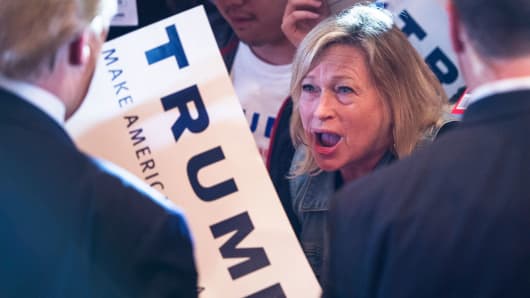If one thing is clear from the election news right now: Republicans have a woman problem. And no, I don't mean the smutty salacious Ted Cruz news about possible marital infidelities—it's too early to say exactly how that will play out. I'm referring to the Republican gender gap that may be a gender canyon come November.
It's no surprise Donald Trump is not doing well with women within his own party. If you need a refresher on why, just watch the"Quotes" ad by the anti-Trump group Our Principles PAC, led by a former Mitt Romney aide. In it, women read a litany of Trump's own damning words about women. The ad has been in heavy rotation in recent primary states, and has already been viewed online over three million times.
Adding fuel to the fire, Trump's campaign manager, Corey Lewandowski, was arrested on Tuesday and charged with battery for grabbing a former reporter for the conservative news outlet Breitbart.







